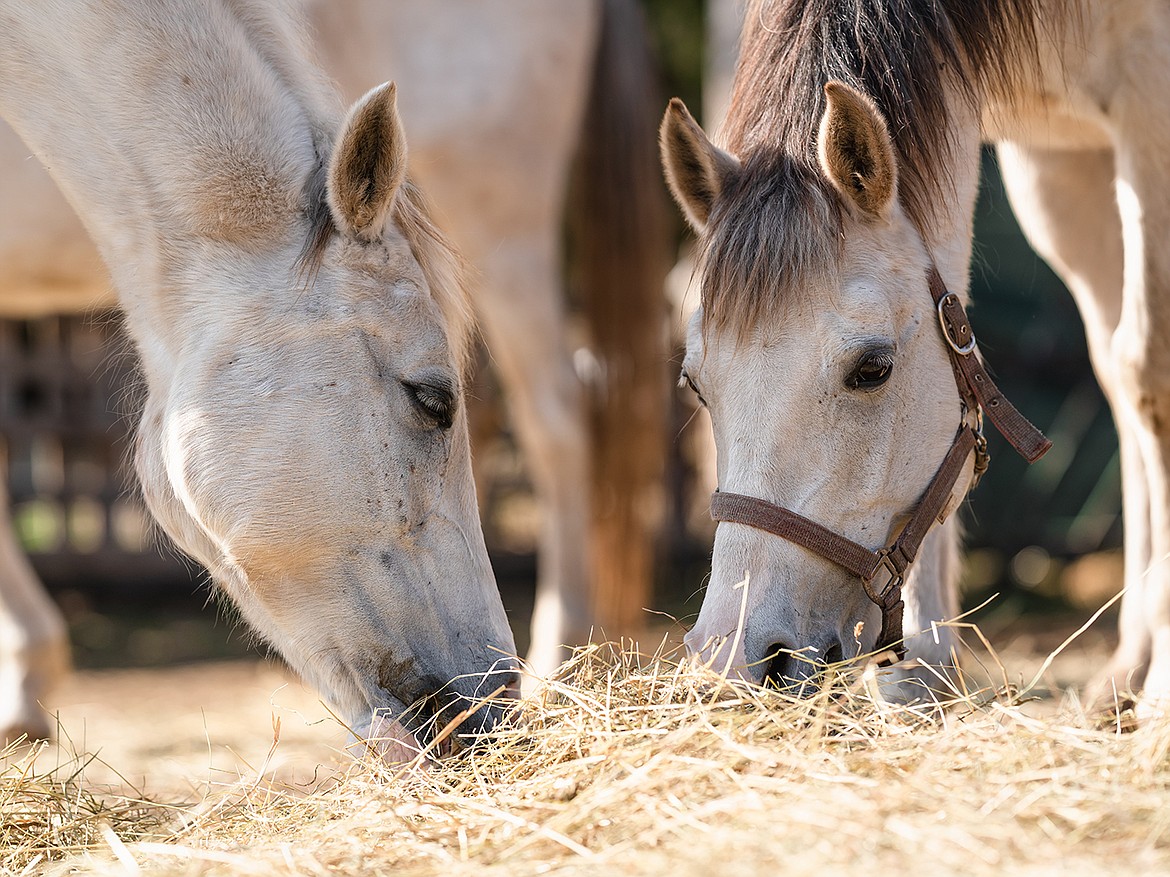Steering horses away from botulism
| February 13, 2023 1:30 AM
There’s nothing more satisfying than filling an empty stomach with food, but unknowingly serving or eating spoiled or contaminated food can cause health concerns. While humans may experience food poisoning as a result, horses can develop botulism, which is deadly.
To keep horses healthy, Dr. Amanda Trimble, a clinical assistant professor of equine internal medicine at the Texas A&M School of Veterinary Medicine & Biomedical Sciences, recommends familiarizing yourself with botulism symptoms and preventative measures.
Botulism, a neuromuscular disease, develops in horses who have ingested the bacterium Clostridium botulinum. This bacterium is commonly found in the environment but can grow rapidly in food spoiled by climate or contaminated with dead animals like rodents or birds. When it grows rapidly, the bacteria releases a potent neurotoxin that causes botulism when ingested.
There are two common forms of botulism in horses that are determined by age—shaker foal syndrome and flaccid paralysis.
Shaker foal syndrome is typically seen in foals aged 1-2 months. At this age, the gastrointestinal tract has not developed fully and does not have the natural defenses to prevent the toxin from colonizing the intestine. This results in difficulty swallowing, coughing, drooling, and muscle tremors.
On the other hand, flaccid paralysis is seen in adult horses with botulism, which affects the whole body. The most common presentation of this form of botulism is severe weakness.
Adult horses impacted by botulism can also show signs of dysphagia, or difficulty swallowing, eating, and holding feed; increased salivation; tiredness; difficulty exercising and taking more time to rest; muscle weakness such as droopy eyelids and floppy tail; muscle tremors; stumbling or buckling at the knees; and an unwillingness to stand or difficulty standing.
“Signs are typically dose dependent, meaning the more toxin that is ingested, the worse the clinical signs,” Trimble said. “Horses who have ingested a low dose may only have mild clinical signs that resolve over a week or two.”
Regardless of the suspected dose amount, Trimble recommends owners contact their veterinarian as soon as signs of dysphagia or weakness appear because foals and adult horses will experience progressive weakness, collapse, and even death if botulism is left untreated.
“Depending on the amount of toxin ingested, a horse can respond to therapy more quickly if owners identify the signs of botulism and intervene early,” Trimble said. “Early administration of the antitoxin and select antibiotics in addition to intensive supportive care is important to resolving botulism.”
Botulism can be prevented by maintaining the quality of a horse’s food to prevent the bacteria from growing. Trimble suggests that owners properly store hay and feed in climate- and pest-controlled environments and check for spoilage before feeding.
“Hay should smell sweet, whereas spoiled hay smells sour, may be warm and moist to the touch, or you may see mold,” Trimble explained.
Haylage and silage, however, are more prone to spoil because they have a higher moisture content than hay and feed. While hay is fresh cut grass left out to dry until it has a moisture content of less than 12%, haylage and silage is wilted or fresh cut grass packed into bales to hold more moisture. As a result, haylage has a moisture content between 15% to 40%, and silage has a moisture content greater than 40%.
“When possible, avoid feeding silage, haylage, and other fermented feeds to horses due to an increased risk of spoilage,” Trimble advised.
In addition to checking for spoilage, Trimble recommends owners check for animal carcasses and bones before feeding their horse and if dead animals are found, throw out the food and provide horses with fresh hay or feed.
If owners suspect their horse has ingested spoiled or contaminated food, they should visit the veterinarian just as they would if they saw their horse exhibiting the clinical signs of botulism.
To prevent the risk of botulism, owners should first be aware of the disease and its consequences. Then, by watching carefully for the clinical signs and maintaining the quality of horses’ food, you can keep your horse safe from botulism.
Pet Talk is a service of the School of Veterinary Medicine & Biomedical Sciences, Texas A&M University. Stories can be viewed on the web at vetmed.tamu.edu/news/pet-talk. Suggestions for future topics may be directed to vmbs-editor@tamu.edu.



